
Gigabyte Aorus Z270X-Gaming 7 Review
Manufacturer: GigabyteUK price (as reviewed): Approx £240 (inc VAT)
US price (as reviewed): TBC
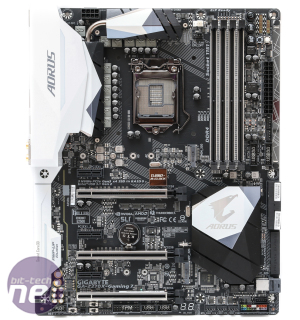 While much of what we're seeing with Z270 boards appears to be a tad more expensive than we're used to, Gigabyte has only added a few notes to the cost of its new Gaming 7 board, which if early prices are anything to go by, could be one of the cheaper premium Z270 boards.
While much of what we're seeing with Z270 boards appears to be a tad more expensive than we're used to, Gigabyte has only added a few notes to the cost of its new Gaming 7 board, which if early prices are anything to go by, could be one of the cheaper premium Z270 boards. Gigabyte has revamped much of its lineup, which now comes under the Aorus brand, although aesthetically, most of the new range looks very similar. There's a new addition to the range - the Aorus Z270X-Gaming 8 - which sports a rather sexy black theme along with integrated Bitspower water blocks, which means that the Aorus Z270X-Gaming 7 is the highest you can go without dipping your toes into some kind of bundled water-cooling paraphernalia.
In many ways, the Aorus Z270X-Gaming 7 could easily blend in amongst a lineup of Z170 boards - it has both SATA Express and U.2 ports - both of which have been ditched from swathes of MSI and Asus models given how M.2 seems to be taking over when it comes to PCI-E SSDs.
That said, the Aorus Z270X-Gaming 7 does sport two M.2 slots and can RAID both of these along with its U.2 port, as if the 3,000MB/sec speeds offered by Samsung's latest M.2 SSDs wasn't enough already.
Click to enlarge
Despite retailing for less than Asus's Maximus IX Hero (again, this is assuming prices we've been given stay the same after the pricing NDA expires tomorrow for Z270 hardware), the Aorus Z270X-Gaming 7 does trump the Asus board in a couple of areas. Firstly, you get Intel Thunderbolt 3 support and Intel-powered USB 3.1 Gen 2 Type-A and Type-C ports. Lighting is even more extensive, with the DIMM slots getting in on the action too, and there's a Creative Sound Core 3D quad core audio processor onboard too, rather than the standard Realtek ALC1220 audio codec we're seeing with most other Z270 boards. You also also get a dual BIOS switch and an audio gain switch as well as an upgradable op-amp.
Click to enlarge
The layout is pretty good, too. Despite cramming in a fair amount into the standard ATX PCB, Gigabyte has still managed to place the top M.2 port and 1x PCI-E slot above the primary 16x slot, so both will be accessible no matter what graphics configuration you use. It has also double-spaced the primary and secondary 16x PCI-E slots, so air-cooled dual-slot cards won't have anything to worry about cooling wise.
Click to enlarge
Like Asus, Gigabyte offers a generous amount of fan headers, catering for both 4-pin and 3-pin fans, and switching between PWM and DC modes for control. Thankfully, it has also bolstered its EFI and Windows-based fan control suites now, so it will have no problems powering numerous case and CPU cooler fans. Again, the U.2 port is something that might net an extra feature point and might be useful if you pick up an Intel U.2 SSD, but the SATA Express ports are a bit redundant and simply take up space on the PCB. Thankfully, they don't appear to have added much to the price.
Click to enlarge
Gigabyte has added steel plating to both the DIMM and 16x PCI-E slots, which looks great, and the keen-eyed will also have spotted a large heat pipe running between the CPU power circuitry heatsinks too - something else the Hero doesn't have.
Click to enlarge
As well as some of the most extensive RGB lighting we've seen, the Aorus Z270X-Gaming 7 offers support for RGBW 5-pin LED strips. These use dedicated white LEDs as well as the usual red, blue and green, providing a purer white colour if white is selected and boosting the number of colour shades available, too.
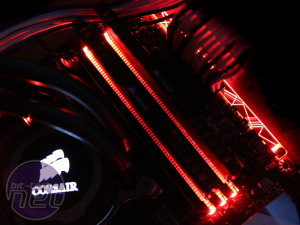
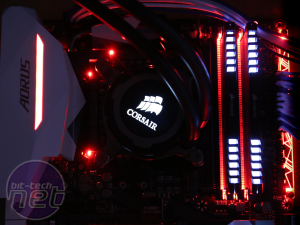
Click to enlarge
It's a shame to see useful features such as power, reset, and CMOS clear switches, as well as LED POST code displays, disappearing from sub-£200 models, but thankfully, they're all here on the Aorus Z270X-Gaming 7, even if the reset and CMOS clear buttons are the pokey little things.
Click to enlarge
The rear panel is only equipped with a handful of USB ports, specifically five USB 3.0 and one Type-A USB 3.1 Gen port, along with the Type-C port. This is a tad stingy, but isn't quite as bad as the ROG Strix Z270F Gaming, which has one less. The dual LAN ports comprise an Intel controller and also a Killer E2500 controller.
Click to enlarge
Specifications
- Chipset Intel Z270
- Form factor ATX
- CPU support LGA1151 compatible (Skylake, Kaby Lake)
- Memory support Dual-channel, 4 slots, max 64GB
- Sound 6-channel Creative Sound Core 3D
- Networking 1 x Intel I219 Gigabit Ethernet, 1 x Killer E2500 Gigabit Ethernet
- Ports 1 x U.2 32Gbps, 1 x M.2 PCI-E 3.0 x4 32Gbps/SATA 6Gbps (up to 2280), 1 x M.2 PCI-E 3.0 x4 32Gbps/SATA 6Gbps (up to 22110), 3 x SATA Express 10Gbps (Z270), 6 x SATA 6Gbps (Z270), 1 x USB 3.1 Type-C, 1 x USB 3.1 Type-A, 9 x USB 3.0 (4 via header), 4 x USB 2.0 (4 via header), 2 x LAN, 5 x audio jacks, optical S/PDIF out, DisplayPort, HDMI,
- Dimensions (mm) 305 x 244
- Extras2 x RGB LED extension cables, isolated audio circuitry, steel-plated PCI-E slots

MSI MPG Velox 100R Chassis Review
October 14 2021 | 15:04

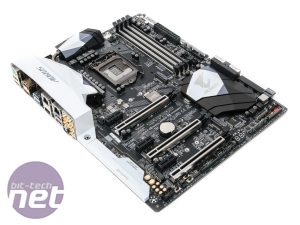
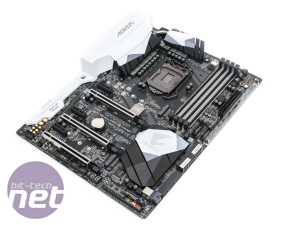
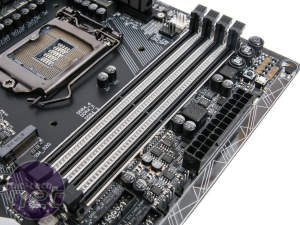
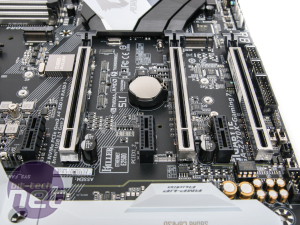
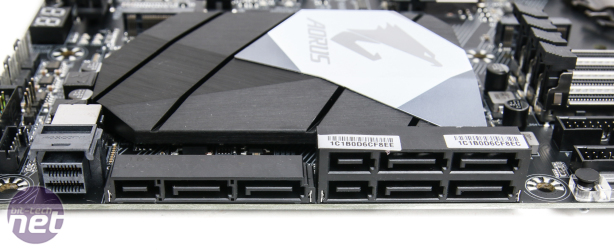
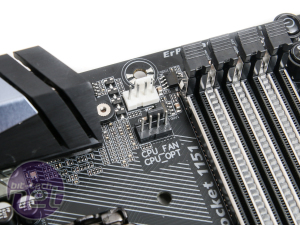
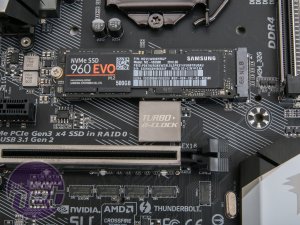
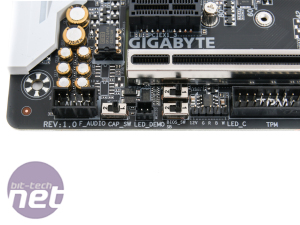
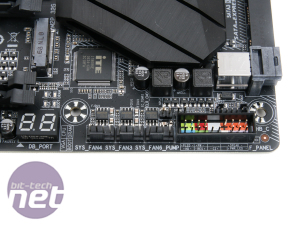
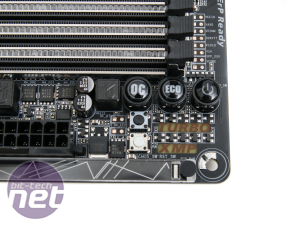
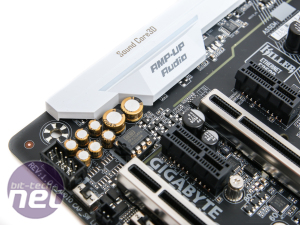
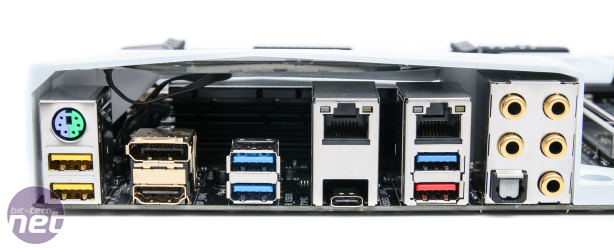
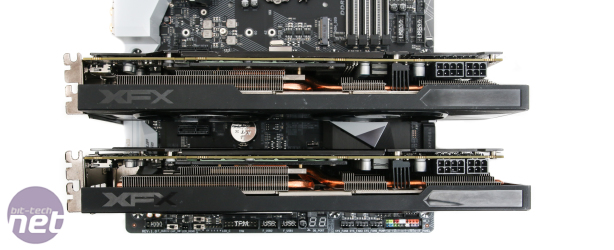







Want to comment? Please log in.